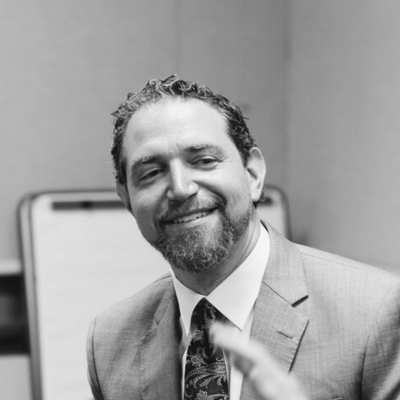A D’var Torah for Parshat Behar-Bechukotai
My Jewish name is Rachmiel. I’m named after my great aunt Rokhl or, as she would come to be known in this country, Aunt Rose. She was an immigrant garment worker, like her sister Ruth, my grandmother, and their brothers and sisters, who endured painstaking daily labor to put clothing on the backs of their American neighbors.
Which raises the question: Why leave behind everything you know for a life of toil in a strange land?
If you’ve ever met (or been) a Jewish immigrant to the U.S., the answer may be obvious. This country held out the promise of a paycheck, the promise of freedom from Jew-haters in Europe. And the promise of a new home.
For my family — and maybe for yours — this land rang a loud and clear bell for freedom, for liberty. I’m not talking a metaphorical bell. There was a real bell. It was called the Liberty Bell. It even had a quote from Torah on it, a quote taken from this week’s parshah:
“Ukratem dror ba’aretz, l’chol yoshveha.” “Proclaim liberty throughout the land, unto all the inhabitants in it.” (Leviticus 25:10)
What is this dror, the call for liberty, so powerful that it was cast in the very metal of that old bell?
For this land’s colonial ancestors, the reasons remain cloudy. All we know for certain is that, in 1752, Pennsylvania assembly speaker Isaac Norris asked the assembly’s agent in London, Robert Charles, to buy a bell. His messages instructed Charles to inscribe the bell “with the following words well shaped in large letters round in vizt …proclaim Liberty thro’ all the Land to all the Inhabitants thereof. – Levit. XXV.10.”
Find more commentaries on Parshat Behar-Bechukotai.
In modern American politics, folks get a lot of mileage out of the word “liberty.” It can mean a lot of things. Maybe the liberty to hoard firearms. Or the liberty to make as much profit as possible. Or liberty from “excess regulation.”
But the Jewish definition of liberty, of this Hebrew word dror, is specific. Liberation from bondage.
In the Talmud, Rabbi Yehudah says dror [refers to] “a person who can medayyer, who can live wherever they want, and do their business in the whole country.” (Talmud, Rosh Hashanah 9b)
Freedom of movement — of course that would be the Jewish definition of liberty. The immigrant experience is part of the Jewish DNA.
Which means that modern American politics have alienated the word dror from the Jewish concept of liberty. The bell celebrates the Jewish text inscribed on it, but also appropriates it. Especially as it is used today, this American concept of liberty is a grotesque midrash, swamping the p’shat — the simple meaning — of our parshah underneath a laissez-faire gloss.
We can count it as a blessing that the Jewish facility with text, our malleable midrashic imagination, imbued another American symbol with profound Jewish values — even as it lent the object itself a deeper immediacy and salience.
Schoolchildren are taught that the monument we now know as the “Statue of Liberty” was a gift from France. Created to celebrate the Enlightenment, the statue’s original title was philosophical: Liberty Enlightening the World. Given those rarified ambitions, it’s perhaps no surprise that, at first, the gift was not deeply cherished by its recipients. In fact, philanthropists had to scramble to procure funds to purchase a pedestal for the statue.
Sign up to receive (M)oral Torah in your inbox each week.
That’s where Emma Lazarus enters the story. Tasked with penning a poem befitting the pedestal, Lazarus completely reimagined the statue through her poem, “The New Colossus.” Shifting emphasis from philosopher to refugee, Lazarus explicitly rejects “storied pomp” and “ancient lands” in favor of “huddled masses,” human beings deemed by their host countries to be “wretched refuse.”
It is scarcely surprising that New York’s high-society benefactors did not see fit to read the poem aloud at the statue’s dedication. But Lazarus’ work had already been done. The lady with the torch was no longer a metaphor. She was now “Lady Liberty,” lifting a literal beacon to welcome refugees.
With her poem, Lazarus both reinvented the statue and gave it purpose, a purpose both Jewish and American. Poetically restoring what the deracinated quote on the Liberty Bell has stolen, the Statue of Liberty extends to the world a global yovel, a universal jubilee. It is the dror that Rabbi Yehudah had promised, the freedom of a person to “live wherever they want, and do their business in the whole country.”
Like all moderns, we live in an arena characterized by a constant struggle over the meaning of words that evoke powerful emotions: justice and virtue, morality and valor, honor and liberty. As Jews living in free societies, we are uniquely qualified to participate in this work. It is when we stand proudly for the liberatory power in our sacred texts, when we utilize our tradition of meaning-making to advance Jewish justice values, that we step into the fullness of that mission.
Rabbi Michael Rothbaum is spiritual leader of Congregation Bet Haverim, a Reconstructionist community founded by the Jewish LGBTQ community in Atlanta, GA, rooted in the foundational work of the pursuit of justice and radical welcoming. He lives in the Summerhill section of Atlanta with his husband, Yiddish singer Anthony Russell.

